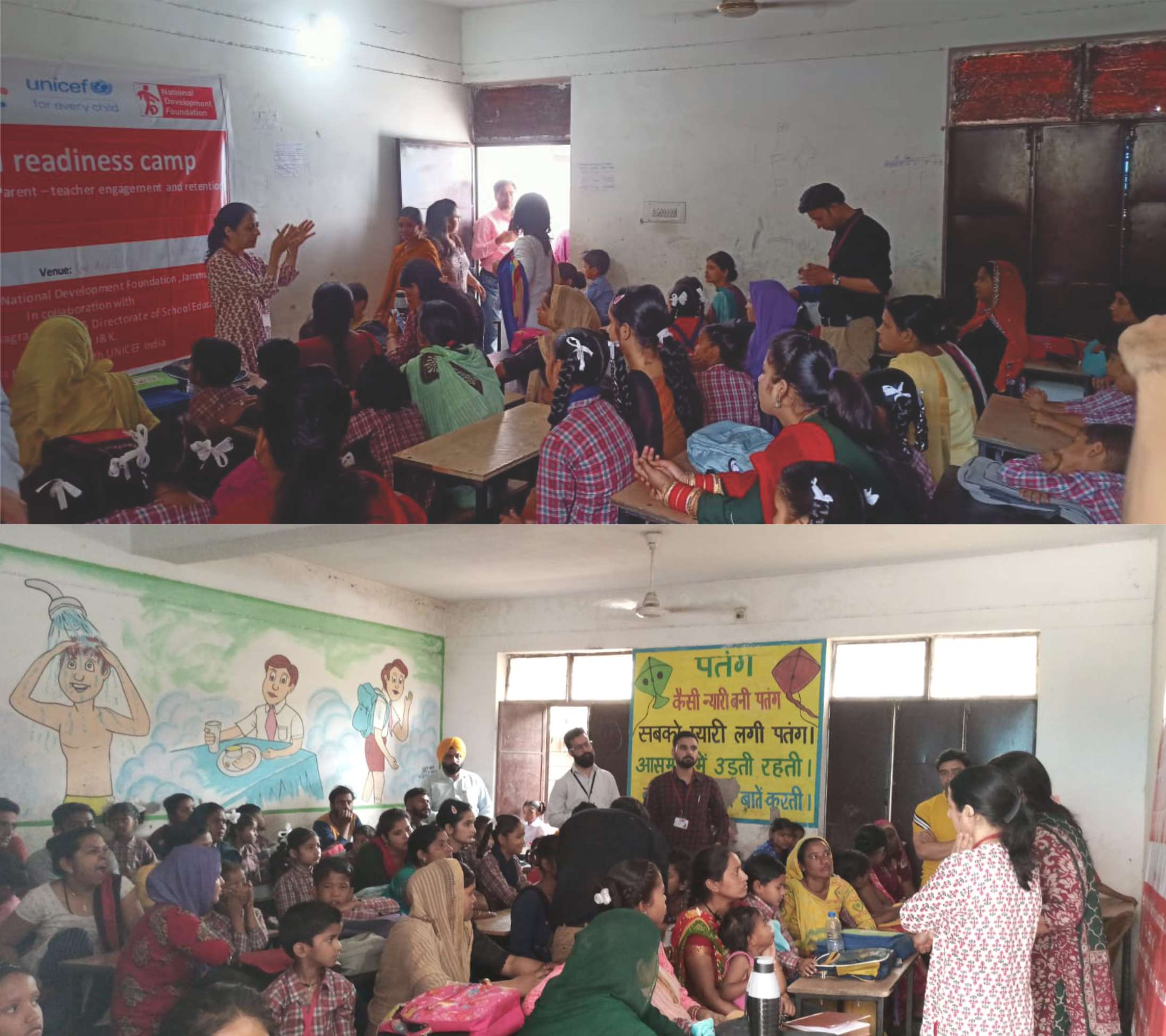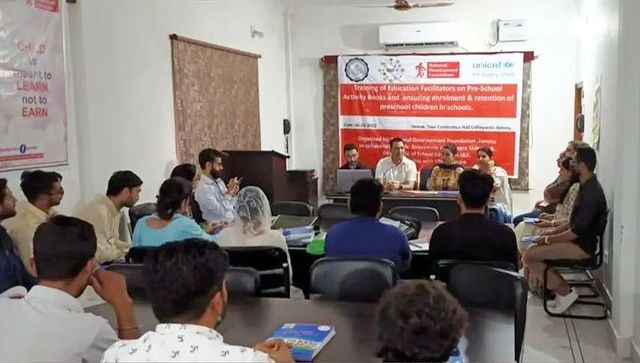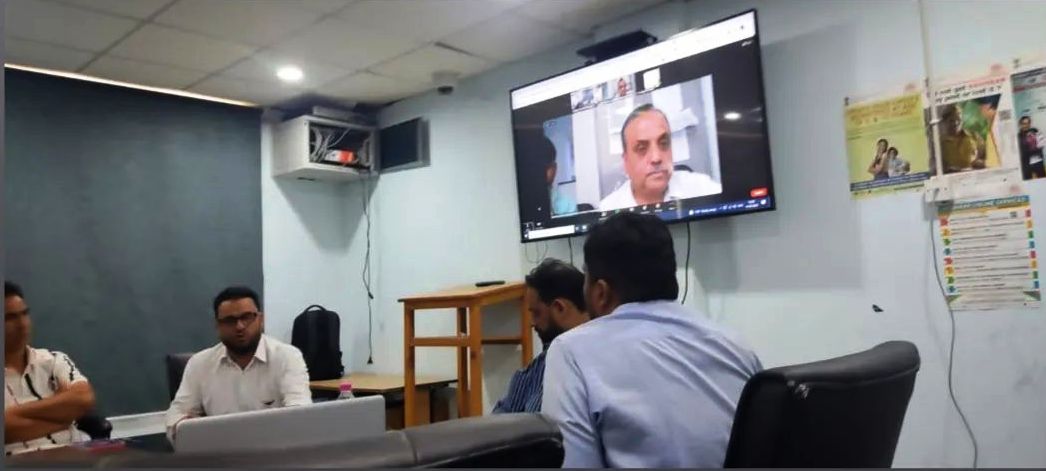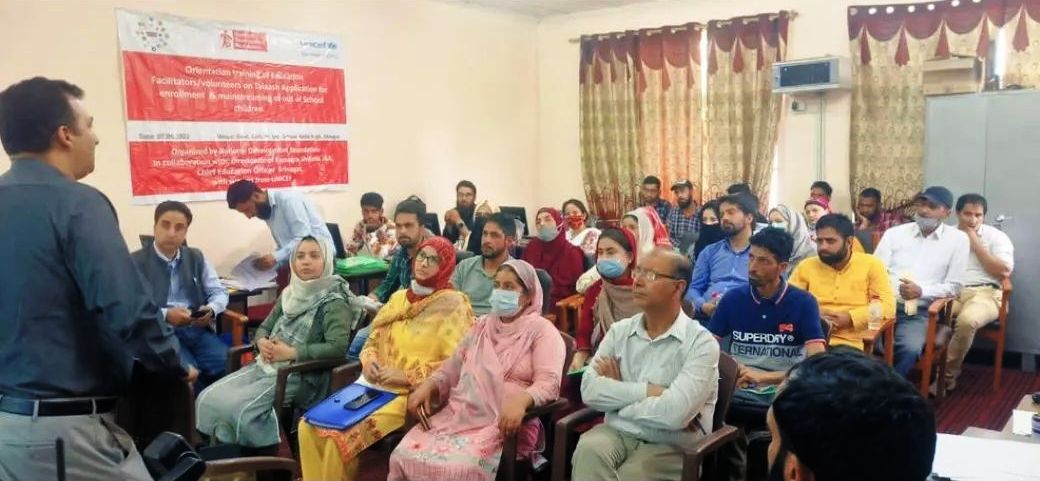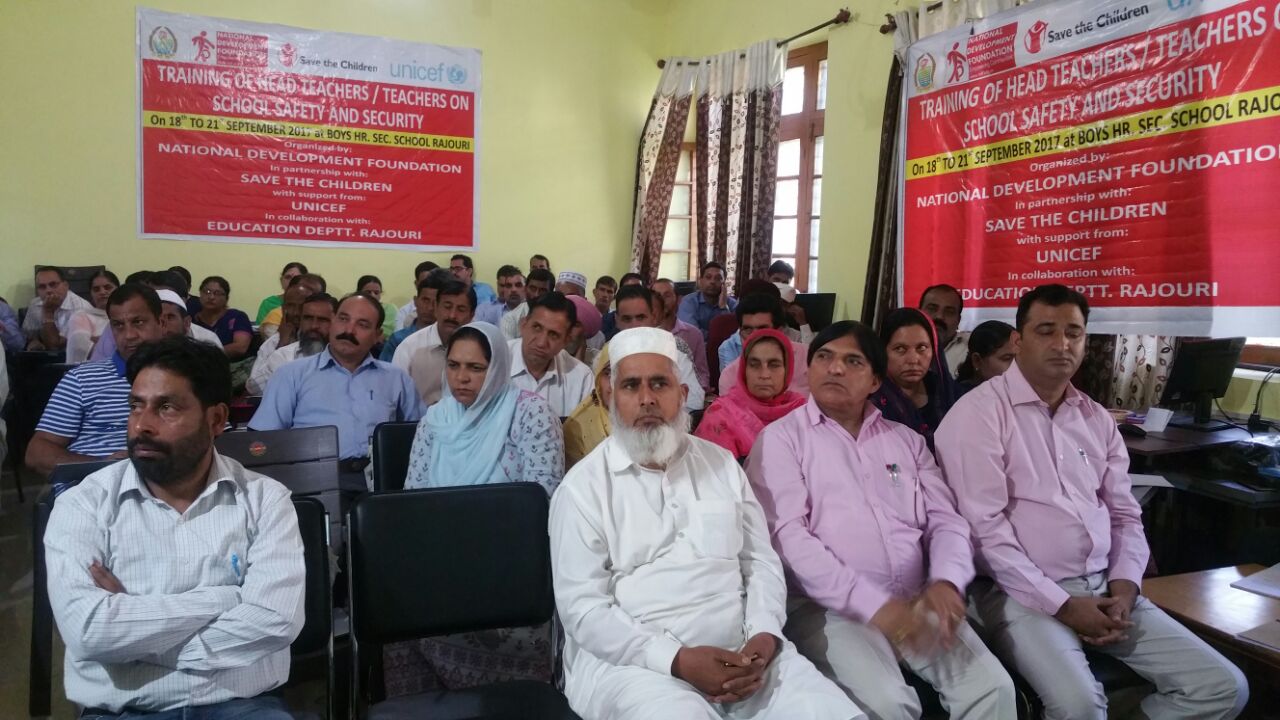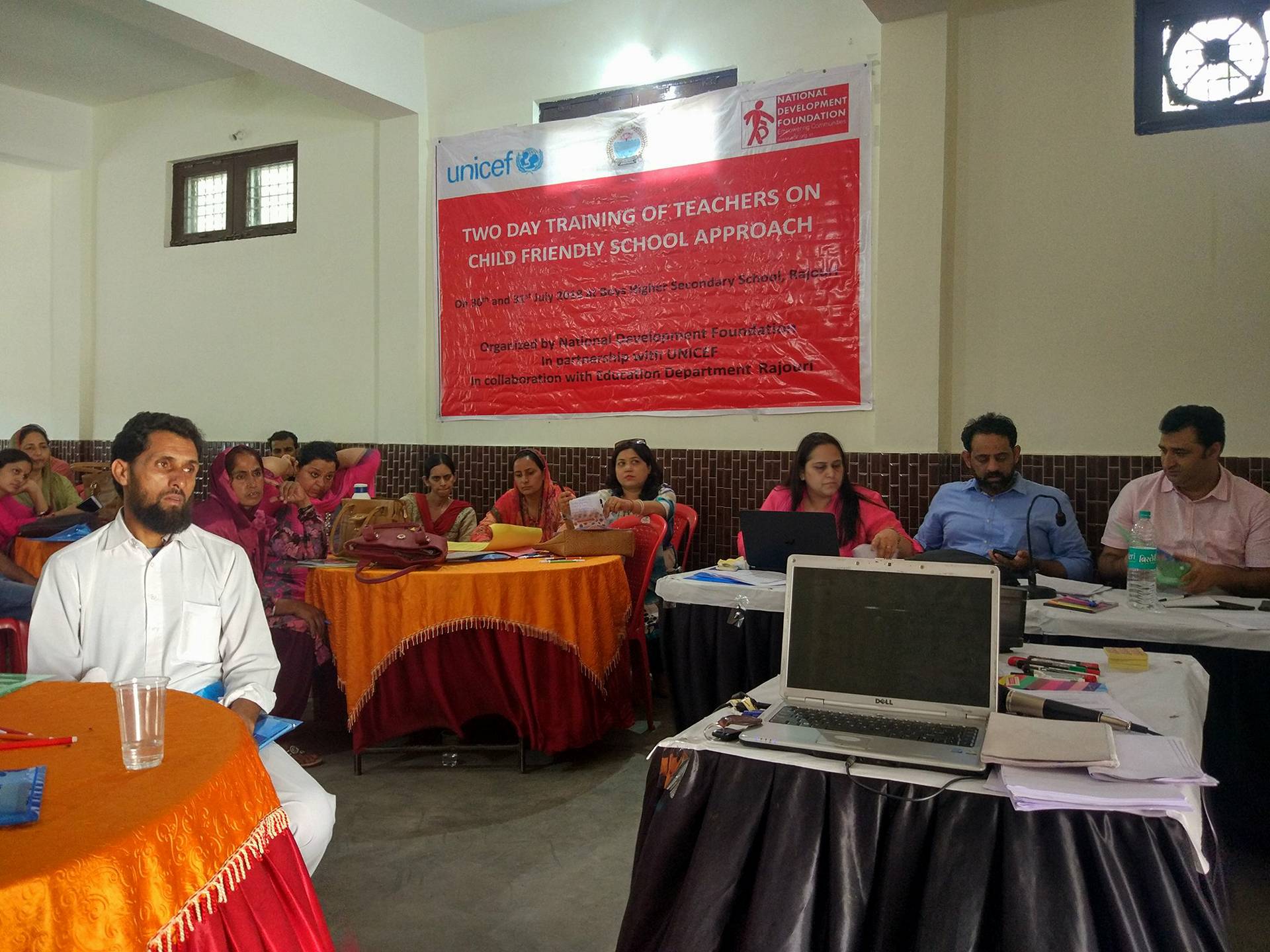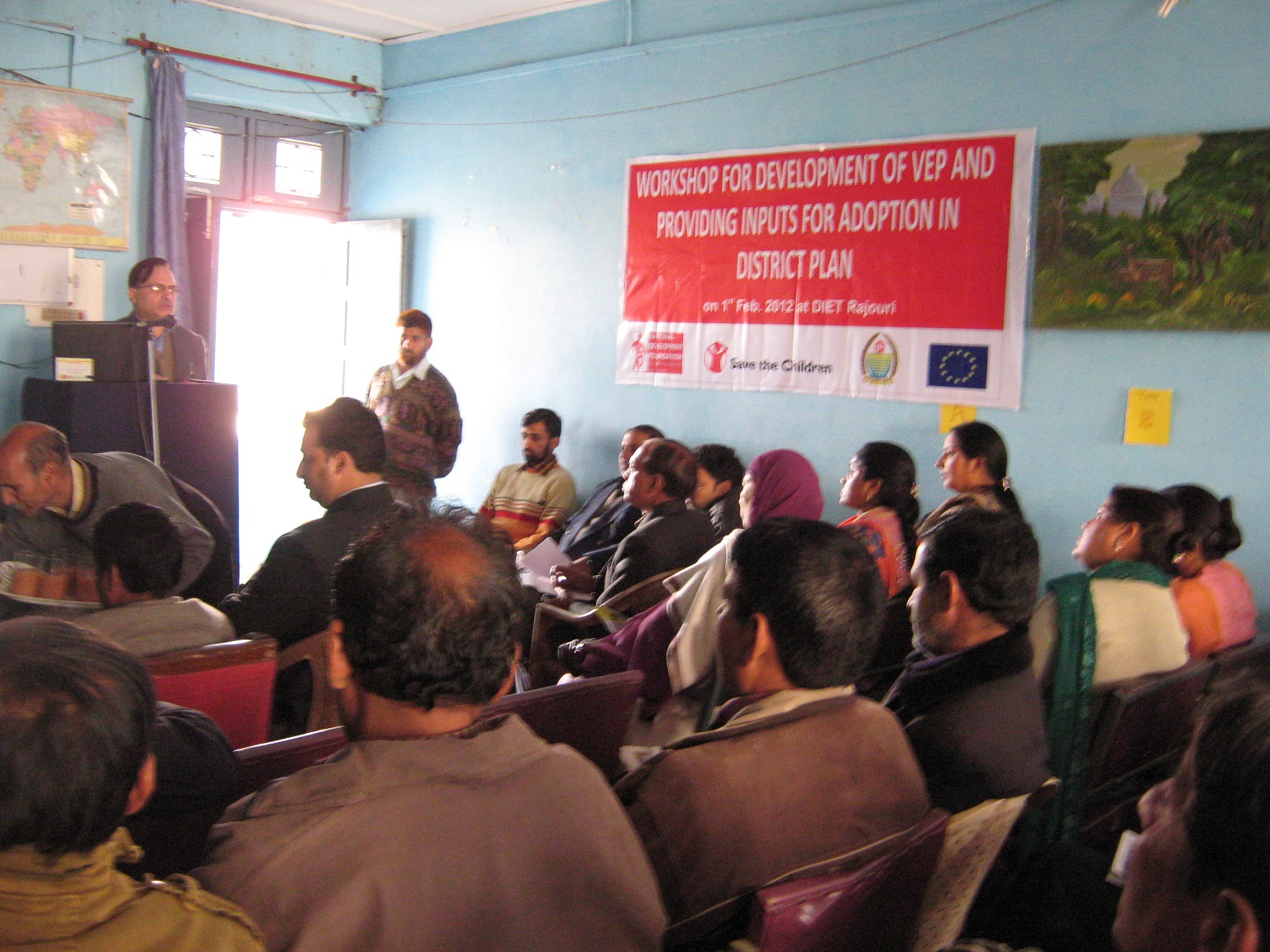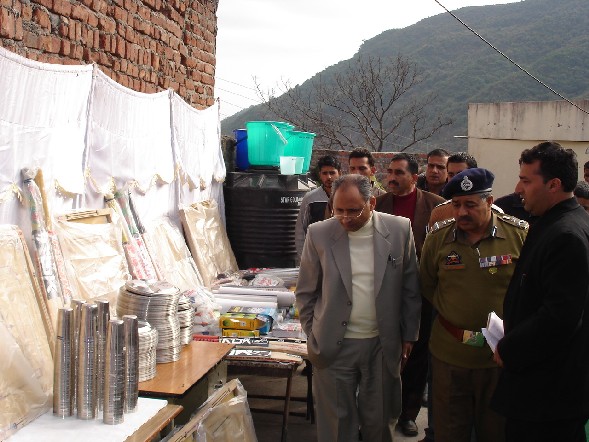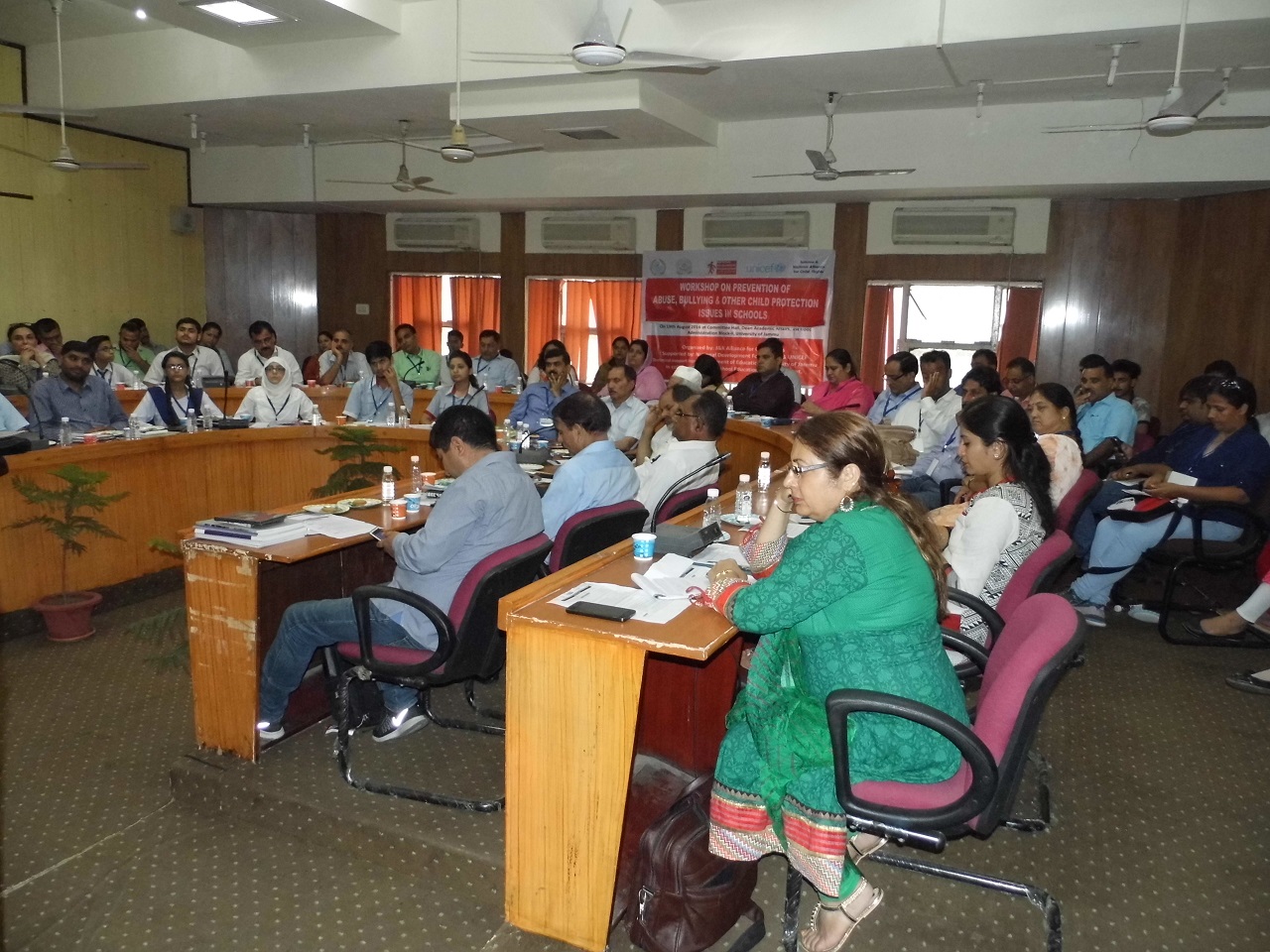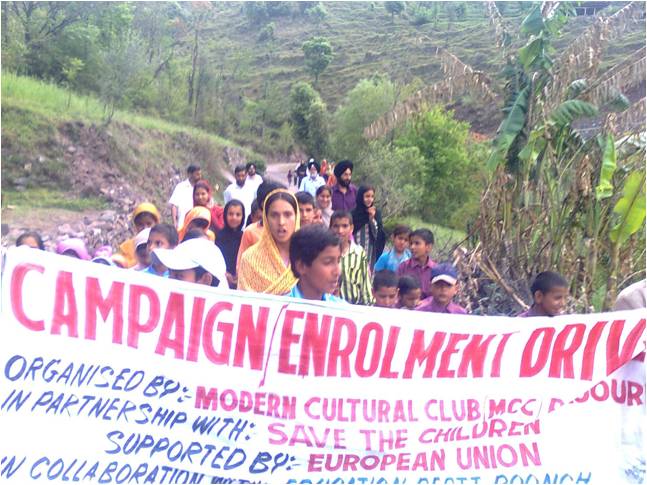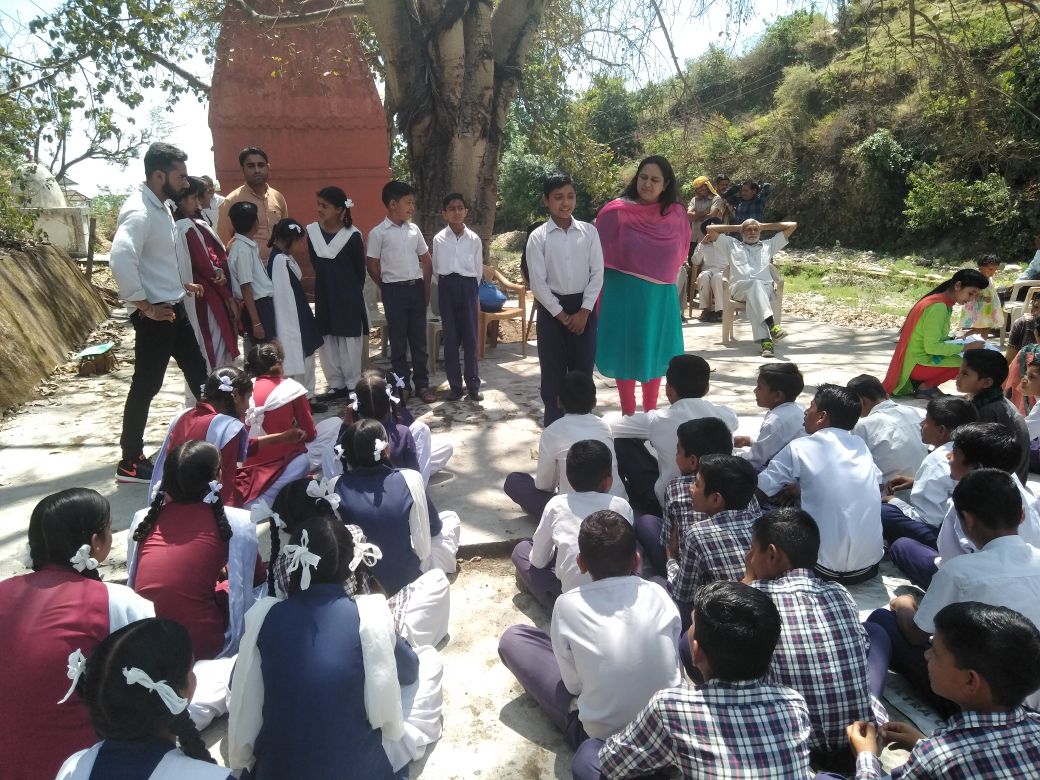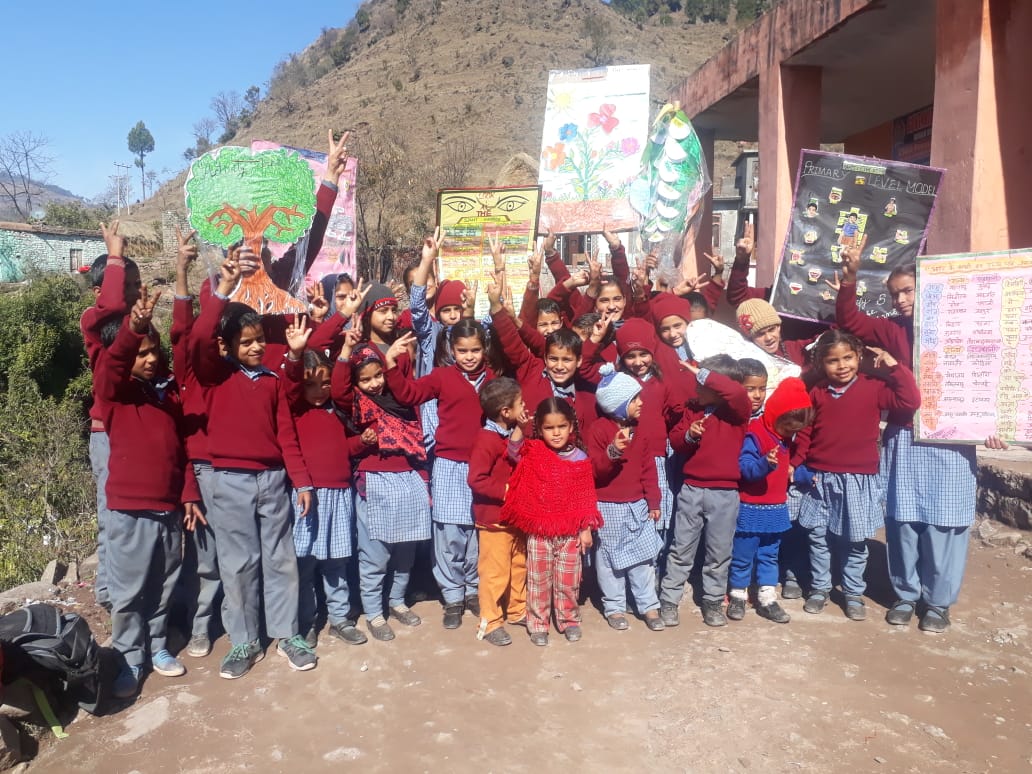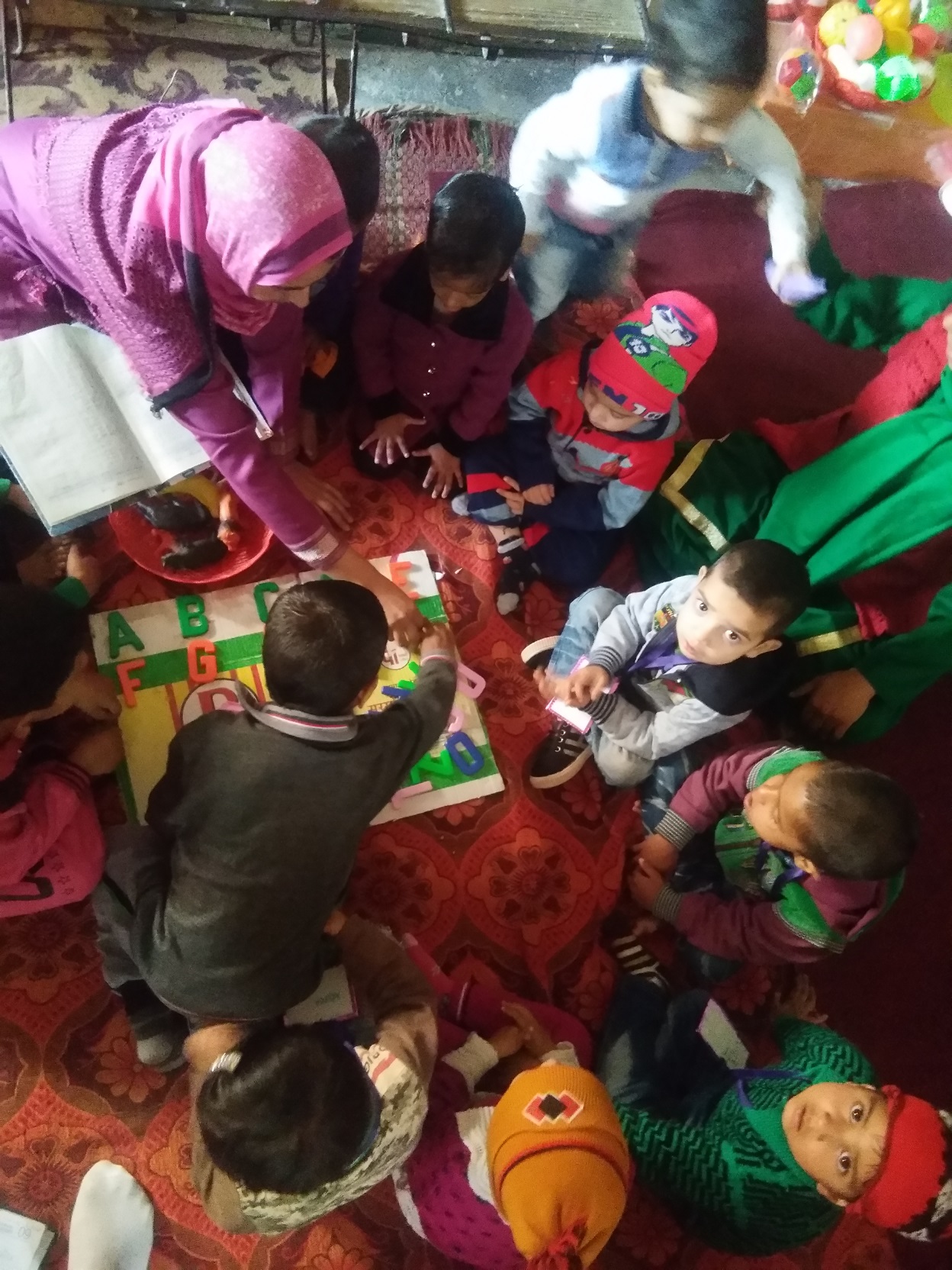EDUCATION
Each and every child has a right to dream. NDF encourages children to dream and help them fulfil their dreams.
Education is the most powerful catalyst for bringing about positive social change. We believe when children are able to go to school, they are enabled to make better choices for themselves and influence the communities they live in, which transforms their present life and ensures a secure future for them. So, we are committed to ensure that all children are provided learning opportunities and necessary services to aid their Right to Development. We advocate with government and strengthen their efforts to ensure that all children have access to schools and quality education for improved learning outcomes. However, child education cannot be done in isolation.
In J&K, Education remains the most affected sector with school going children being the worst suffers due to recurring and prolonged strife, bandhs/strikes, curfew, crumbling infrastructure and intermittent cross border firing/shelling in areas located on LoC and IB. Conflict in J&K is one of the major impediments for the realisation of SDG 4 which aims to ensure inclusive and equitable quality education and promotes lifelong learning opportunities for all. The situation has worsen over the last 2 decades with many children being injured, maimed or even killed due to random shelling, cross border firing, protests, attack by unidentified persons, fear and distress among children. Thousands of most marginalised children including children living in conflict affected areas, children living in areas located on LoC & IB, children with special needs, orphans, nomadic children and girls still don't have access to schools in J&K.
Through our education programme, we aim to ensure that every child attains her/his right to equitable and quality education from early learning opportunities to elementary education so that they reach their full potential. We focus on creating inclusive, nurturing and child-friendly schools and systems where all children from diverse backgrounds are treated well, feels safe and secure and encouraged to actively participate in child-centred activities to enable them to reach to their full potential. We develop effective and encouraging learning environment for underprivileged children in schools and AWCs and demonstrate effective models for replication and scale up.
We collaborate, develop capacities and work closely with government especially teachers and Anganwadi Workers to make education system more relevant and responsive to the needs of every child especially the most marginalized ones those who are in greater danger of being left behind like girls, children with disabilities, children affected by conflict and children living in extreme poverty.
Through our education programme we focus on:
Elementary Education:
We are committed to ensure quality elementary education to every child especially the underprivileged ones. School being critical to the learning process, we demonstrate Child Friendly Schools and Systems that promote educational environment that is safe, healthy and protective with trained teachers, adequate resources and appropriate physical, emotional and social conditions for learning. We work closely with the government and develop capacities of DRGs, ZRPs, CRPs, head teachers and teachers to support in setting up child-friendly learning environment by promoting the development and use of available age and grade appropriate teaching and learning aids and material, promoting child centred classroom practices, eliminating corporal punishment and ensuring school safety and security.
We strongly advocate with government for improving school infrastructure including child-friendly school entrances and class rooms, safe and clean school surroundings, safe, clean and hygienic school spaces, separate functional toilet facilities for boys and girls, proper hand washing facility, use of dustbins, First-Aid kit, etc to improve the school environment for learning.
Sensitization of children and communities on importance of school education and children's right to education to demand equitable access to quality education is our core work with communities. We work closely with children, parents, VECs and SMCs to strengthen community monitoring so as to hold education duty bearers accountable to ensure inclusive and equitable education and learning opportunities for all. We develop capacities and empower communities especially parents, VECs and SMCs to prepare School Development Plans, actively participate in management and functioning of schools, and check corporal punishment in the schools to ensure full attendance and retention of children.
We run campaigns to support communities to identify and mainstream out of school children in age- appropriate classes. We facilitate peer support in retention and re-enrolment of out of school children. We form and strengthen Children Groups and Student Forums in schools for promoting an atmosphere of confidence and trust among every student and for providing a platform to students where they can raise and resolve their concerns. We collaborate and work closely with Education department to set up a child protection redressal mechanism for students to express their grievances both in person and anonymously in schools. We place drop boxes for complaints/suggestions in the schools and set a mechanism for redressing the grievances of the students.
We promote girl child education and universal access to improved water, sanitation and hygiene facilities in schools. We run campaigns, sensitization programmes and individual counselling of parents and children to combat child labour and child marriage.
We strongly advocate with government for policy and legal reforms in line with Right of Children to Free and Compulsory Education (RTE) Act 2010 which allows every child between the age group of 6 to 14 years and empowers especially children belonging to the backward section of the economy to have access to free, fare and compulsory education.
Early Childhood Care and Education
The first six years of a child's life are globally acknowledged to be the most critical years for life-long development, since the pace of development is extremely rapid. It is during these years that children develop the cognitive, physical, social and emotional skills. Stimulation and experience based brain development in early childhood sets neurological and biological pathways that affect health, learning and behaviour throughout life.
Recognising that Early Childhood Education (ECE) is critical to optimum learning and retention of children in schools, NDF works with communities to prepare the children in the age group of 3-6 years with school readiness skills. We mobilise communities especially mothers of children in the age group of 3-6 years to enrol their children in Anganwadi Centres (AWCs) to give them the right start for their holistic growth and development.
We collaborate and work closely with government to demonstrate model Early Childhood Education Centres in J&K and advocate for its replication and scale up. We develop capacities of ICDS functionaries ranging from State, district and block level government officers to grass root level AWWs on early childhood care and education.
We support government in rolling out State Early Childhood Education (ECE) Curriculum in AWCs by providing learning and recreational material to AWCs to set up learning corners for young minds; and by providing mentoring and handholding support to Anganwadi Workers (AWWs) to strengthen early childhood education under Integrated Child Development Services (ICDS) in AWCs of J&K.
Milestones achieved in EDUCATION
- 2650 VEC members of 180 VEC Committees trained on their roles and responsibilities and working
- 1184 members of Children Groups of 74 villages engaged in identification and enrollment of dropout/ never enrolled and identifying education related issues.
- 300 trained Master trainer on CFSA and quality education.
- Improved quality of education for 7878 Children from 74 Villages benefited through quality education.
- 566 children of CCIs were provided educational kits
- 873 children from vulnerable families benefited through educational material support.
- 219 out of school/ never enrolled children counseled/enrolled in schools.
- 854 teachers trained / benefited through training programmes
- 200 head masters trained on Child Friendly school approach.
- 287 teachers from 150 Schools trained on CFSA.
- NDF train aprx. 150 ICDS staff and facilitate them to develop model ECCE center.
- 48 Model ECCE centers established in Jammu and Rajouri District.
- Complaint boxes have been installed in 100 schools Of Rajouri District.

